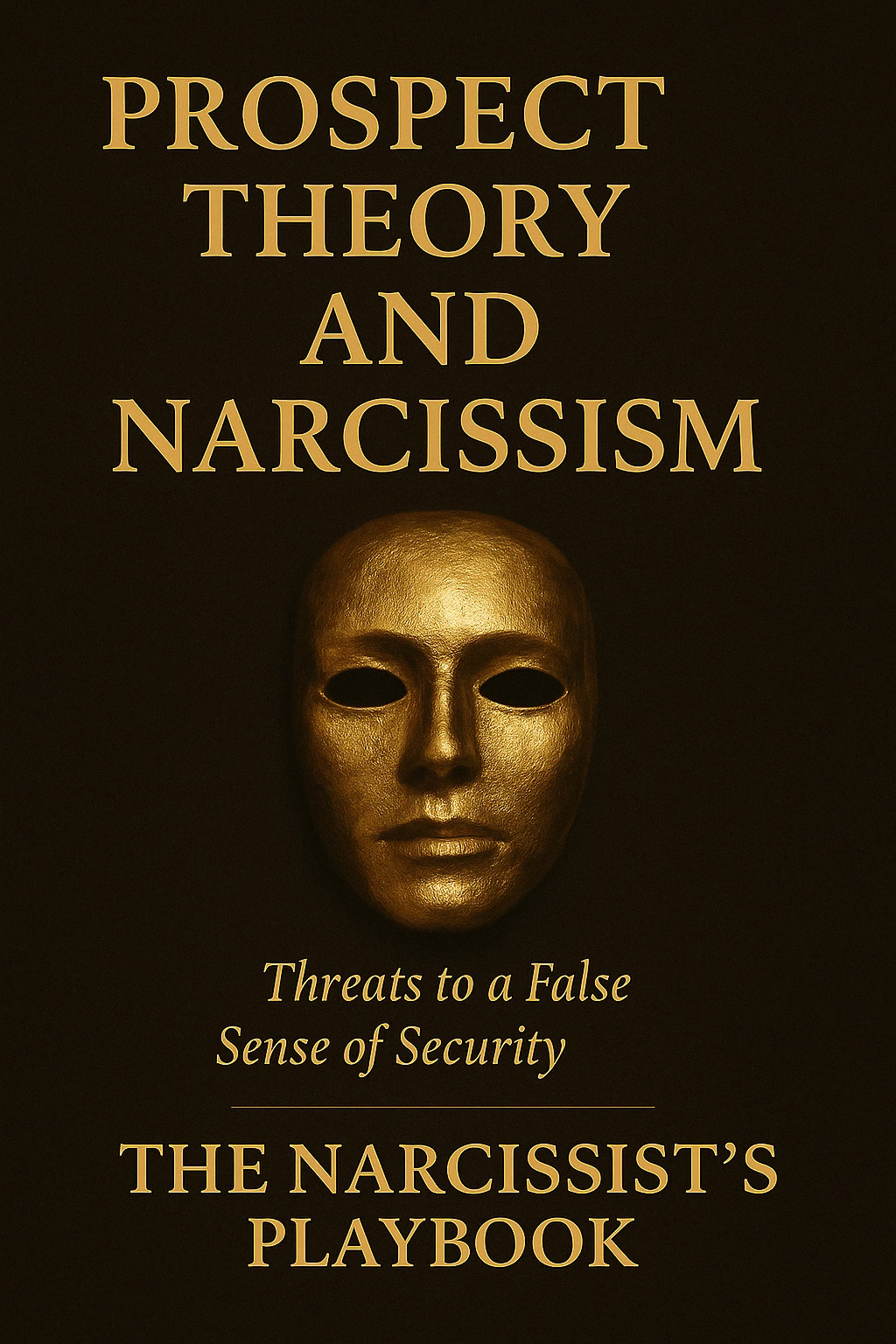Chapter 5: Prospect Theory and Narcissism
From the THX Series Hub: The Narcissist’s Playbook & The Life After
Author’s Note
This post applies a behavioral economics lens to lived experience.
It’s not about diagnosis—it’s about pattern recognition.
If you're navigating recovery, read gently. These patterns may help make sense of the confusion.
You are not overreacting. You are responding to real losses—some of which were invisible at the time.
Why narcissists fear losing control more than they love you.
Prospect Theory explains how we perceive gain and loss:
We feel losses more intensely than gains—even if the amounts are the same.
And narcissists?
They are wired for loss aversion—but in emotionally manipulative ways.
They interpret your autonomy, boundaries, silence, or success as threats to their control.
It’s not about logic. It’s about power.
They fear losing admiration, dominance, or narrative authority more than they care about connection or truth.
Why They Explode (Even When You Think You’re Being Kind)
My Experience:
I used to soften my truth. Set gentle boundaries. Assume my tone mattered more than my content.
But even polite “no”s triggered rage.
Even kind honesty became betrayal.
Even silence was weaponized as rejection.
The Pattern:
Narcissists don’t weigh your intentions.
They measure what they’re losing.
Your peace feels like their loss of control.
Your clarity feels like their loss of narrative.
Your boundaries feel like their loss of superiority.
The Takeaway:
You cannot prevent their explosions by being kinder.
You only delay them by being smaller.
Micro-Losses They Cannot Tolerate
You stop apologizing for everything.
You succeed without their help.
You emotionally detach from their chaos.
You speak up in front of others.
You set a consequence and follow through.
To you, these are steps toward healing.
To them, these are proof you’re slipping away.
And to someone who equates love with control—any form of independence is betrayal.
Prospect Theory in Practice
Prospect Theory shows us:
People overvalue avoiding loss compared to gaining something new.
Even a small loss feels more painful than an equivalent win feels good.
Reference points matter—what they’re used to determines how threatened they feel.
For a narcissist:
Your past compliance becomes the reference point.
Any shift feels like a loss, even if it’s growth for you.
So they escalate, manipulate, or punish to restore the baseline—their control.
Final Words
Narcissists don’t thrive on love. They thrive on certainty.
And certainty, to them, means:
They’re always right.
You always return.
They’re never at fault.
You never outgrow them.
But your freedom will feel like loss to them.
Let it.
You don’t exist to preserve their comfort.
If it hurts to walk away, that’s okay.
Loss is real. But so is liberation.
And you? You’re gaining more than they ever gave you.

Quick Links
Framework-based essays that decode the patterns, tactics, and predictable emotional logic of narcissistic behavior.
🔹 Chapter 1: The Illusion of Utility
Narcissists appear helpful, generous, and supportive—but what they offer isn’t true utility. This post unpacks how they simulate usefulness to create dependence, and how recognizing what was missing can be the first step toward freedom.
Using the lens of human flourishing, this piece explores how narcissists mimic love, meaning, and growth—not to connect, but to control. When every good thing gets twisted, how do you tell what’s real?
🔹 Chapter 3: Twisting the Admiration Equation
Admiration should feel earned, mutual, and expansive. But narcissists distort it into obligation. This post reveals how they manipulate skill, goodness, awe, and gratitude to extract loyalty—and punish doubt.
🔹 Chapter 4: When Admiration Becomes Worship
This entry shows what happens when admiration is no longer enough. Narcissists demand reverence, punish independence, and expect silence in the face of harm. Love is replaced by performance—and dissent becomes betrayal.
🔹 Chapter 5: Prospect Theory and Narcissism
Why do narcissists explode over small things? This post uses behavioral economics to explain how narcissists experience boundaries, autonomy, and truth as losses—and why they’ll do anything to avoid them.
🔹 Chapter 6: The Micro-Moment Manipulation
Sometimes what keeps us hooked isn’t the big promises—it’s the little moments. This piece explores how narcissists use micro-moments of affection and relief to reset your hope and obscure the harm.
🔹 Chapter 7: RKYC for Survivors
Originally designed as a business tool, “Really Know Your Customer” becomes a healing practice here. This post helps survivors rediscover their truth, needs, and voice—after years of emotional distortion.
A quiet offering for those who stayed too long, left too late, or are still trying to name what happened. This piece honors survivors, holds space for grief, and speaks to the person you used to be.
📖 Author’s Note & Series Closure
This final entry reflects on why the series was written, how the THX frameworks helped decode personal experience, and what it means to move forward—with clarity, dignity, and your story intact.



